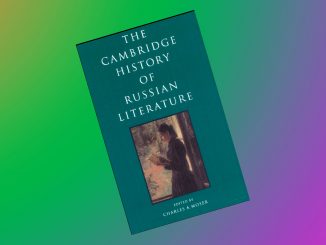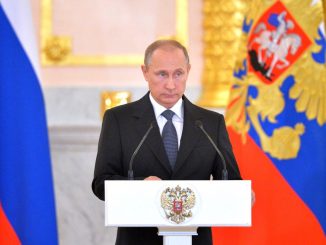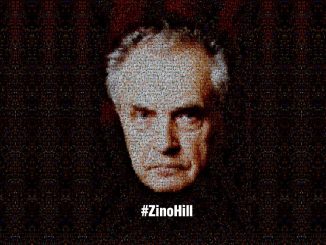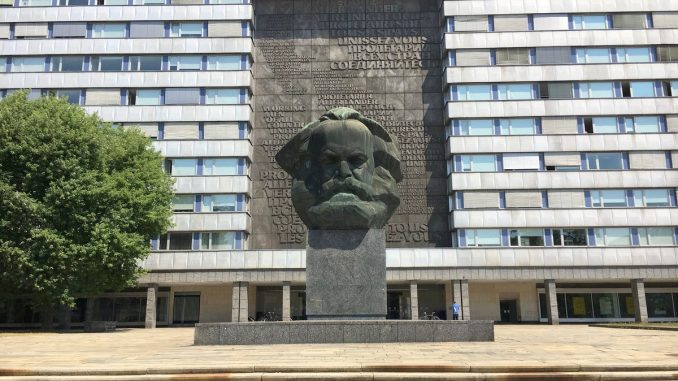
Alexander Zinoviev, by the 1990s, started to see Westernism as disguised totalitarianism
IAI News (The Institute of Art and Ideas), 2nd November 2017
Paula Erizanu
10 Soviet Philosophers You Should Know. Discover the USSR’s forgotten thinkers
Given the radical ideological change that the November 1917 Russian Revolution brought, it’s peculiar how little we speak about Soviet philosophers. One obvious explanation is that the government used philosophy to reinforce its ideology rather than allowing it to be a space for critical thinking and open debate. Fearful of giving philosophers too much autonomy, Soviet institutions not only exiled rebels but eventually marginalized even its main ideologues. Despite all these challenges, at least ten thinkers are worth our attention. There is one thing they all share – an interdisciplinary approach to their subjects. None of the thinkers below solely pursued philosophy – perhaps a happy by-product of the Soviet interference in academia.
“We have been nodding for so long that today we should learn anew how to distinguish life from death, reality from dream […] Diminished, in the Soviet way and without any energy, we lost the ability to understand politics […] The unreality of things and the zombie-like nature of humans has become the rule of life.”” — Merab Mamardashvili
1. Mikhail Bakhtin
The most known Soviet thinker, Mikhail Bakhtin (1895 -1975) has been dubbed as ‘a star of postmodern West’ and ‘a precocious post-structuralist’. A literary theoretician and philosopher of language, Bakhtin was interested in most of what, a few decades later, became the hot topics of postmodernism – discourse, the multiplicity of the self, hybridity, otherness, sexuality and subversion. In the Problems of Dostoevsky’s Poetics, published in 1928, Bakhtin puts forward the idea of ‘dialogism’, or ‘polyphony’, arguing that the reader, the writer, the work and the social context continuously influence each other; and that language is not static but constantly evolves. Immediately after publishing this book, Bakhtin got arrested and exiled to Kutanai, Kazakhstan, in 1929, where he worked as a book-keeper for six years. He returned to Moscow in 1940 to write his doctoral thesis on Rabelais and then became the chair of the Russian and World Literature Faculty at the University of Mordovia.
2. Merab Mamardashvili
Much less known than Bakhtin, Merab Mamardashvili (1930-1990) has been called a ‘Georgian Socrates’ due to his preference for live dialogue over writing, as well as his lecturing talent as a professor at the Institute of Philosophy of the USSR in Moscow and the University of Tbilisi. His interests ranged wildly from the methodology of science to the role of consciousness in social beings, aesthetics and politics. He strongly opposed a ‘national philosophy’, saying that ‘I am fighting not for the Georgian language but for whatever can be said in Georgian. I do not need faith, I need freedom of conscience!’
“Phenomenology is the accompanying feature of all philosophy” — Merab Mamardashvili
Mamardashvili was interested in German and French philosophy – particularly Descartes, Kant, and Proust and phenomenology – and criticized his co-nationals for replacing the Enlightenment with patriotism. He saw nation-states as an intermediary stage of modernity which should end with multinational societies – of which USSR was not a part, according to Mamardashvili. But above all, Mamardashvili hated the Soviet state’s opposition to dialogue.
3. Lyubov Axelrod
A revolutionary and philosopher, Lyubov Axelrod (1868 -1946) was at the heart of public debates over interpretations of Marxism in the Soviet Union. Like so many of Russian Revolution’s leading figures, Axelrod studied at the University of Bern, where she also joined the Marxist group The Liberation of the Masses. After finishing her PhD arguing for a materialist understanding of history in 1900, Axelrod went back to Russia. As a professor at the Russian Institute of Philosophy, she criticised the ideas of both Vladimir Lenin and his rival Alexander Bogdanov, co-founder of the Russian Socialist Democratic Labour Party of Russia, declaring them anti-Marxist. She was one of the main advocates of a mechanistic rather than a dialectic understanding of Marxism. Axelrod argued that empiricism and natural sciences should inform Marxism rather than the other way round. After Stalin made dialectic Marxism the official ideology of USSR in 1929, Axelrod got marginalized and eventually turned her attention to the sociology of art.
4. Abram Deborin
Another University of Bern graduate, Abram Deborin (1881 – 1963), took the opposing view to Axelrod in the debate over the right interpretation of Marxism. Stalin picked Deborin’s dialectical materialism, otherwise known as diamat, as the official Soviet philosophy. This settled the debate between the mechanists and the dialecticians. Despite Stalin’s support of Deborin’s group, the philosopher kept a low profile after the 1930s and his works stopped being published.
5. Vasily Rozanov
A controversial and idiosyncratic philosopher of religion, Vasily Rozanov (1895 – 1919) tried to reconcile Christianity to ‘healthy sex’ in the family. He had personal reasons to fight for this – married young and unable to get a divorce, he remarried secretly and suffered that his children from his second marriage were considered illegitimate.
German political philosopher Klaus von Beyme called Rozanov ‘the Rasputin of the Russian intelligentsia’. Others dubbed Rozanov the ‘Russian Freud’ or ‘Russian Nietzsche’ for challenging morality and interpreting cultural history through the lens of sexuality. Rozanov opposed Christian asceticism, writing that “The Sun was shining before Christendom and will continue to shine after Christendom is over. The Sun is more powerful than Jesus Christ.”
“I am not necessary” — Vasily Rozanov
Although he earned his living as a journalist, he thought of himself as a philosopher, despite the fact that he wrote in an irreverent, colloquial and personal style. His works were forbidden in USSR but they are now widely popular in Russia and have been used by nationalists to promote their agenda.
6. Pavel Florensky
A Russian Leonardo Da Vinci, Pavel Florensky (1882 – 1937) was a real polymath – philosopher, theologian and mathematician (with degrees in each of the disciplines). Although after the revolution he refused to renounce his priesthood in favour of official atheism, Florensky was allowed to stay professionally active for over a decade as an electrical engineer in public projects. Until recently, he was remembered in Soviet history for the invention of a noncoagulating machine oil. But in 1933, Florensky got imprisoned several times and exiled to do ‘corrective labour’ in Siberia.
“Knowing is a real going of the knower out of himself, or (what is the same thing) a real going of what is known into the knower, a real unification of the knower and what is known. That is the fundamental and characteristic proposition of Russian and, in general, of all Eastern philosophy” — Pavel Florensky
His most famous work, The Pillar and the Ground of Truth, is a set of twelve letters addressing a ‘brother’ or ‘friend’ (or Christ), which defines Christian love as a combination between ‘phillia’ (friendship) and ‘agape’ (universal love).
Florensky thought that rational analysis prevents us from achieving universal love. In rationalising the world, he wrote, humans objectify it and separate themselves from it, rather than be at one with God’s creation.
7. Elena Oznobkina
In addition to being a philosopher, Elena Oznobkina (1959 – 2010) was also a human rights activist, avid critic of prisons and editor of the Russian Index on Censorship. She was interested in philosophical anthropology, corporeality in the philosophy of modernity, the philosophy of punishment and Kant’s anthropology. Oznobkina opposed above mentioned Mamardashvilli’s classic interpretation of Kant and instead saw Kant’s thought not as purely intellectual but imbibed with intense feeling and existential anxiety.
8. Aleksei Losev
One of the most prominent Russian philosophers and culturologists, Aleksei Losev (1893 – 1988) wrote on aesthetics, music and logic, the dialectics of myth, Plato, Aristotle and other ancient philosophers.
Losev published his most famous work, The Dialectics of Myth, in 1930. The authorities immediately condemned it as ‘militant idealism’, arresting and sending both him and his wife Valentina Sokolova to labour camps for ten years. But three years later, they got freed as Losev went nearly blind. However, Losev was not allowed to teach philosophy and found refuge in Classics.
The Dialectics of Myth argues that myth is ‘a logically, which means first of all dialectically, necessary category of consciousness and existence’ and not just a work of art, scheme or allegory’.
Throughout his life, Losev remained particularly interested in the union between idea and matter, and existence and consciousness, saying that ‘not only existence defines consciousness, but consciousness defines existence as well’.
9. Alexander Zinoviev
Logician and social critic Alexander Zinoviev (1922 – 2006) made a famous U-turn from writing anti-Soviet novels until the 1980s and getting exiled for it, to praising Stalin, Milosevic, Mladic and Karadzic in the 1990s. His first novel The Yawning Heights was a satire on a town suffering from constant shortages and inefficiency, and praising mediocrity, but where no one makes an effort to protest against the rule of The Boss (Stalin) because everyone has a stake in the status quo and the lies that keep it going. The work got popular in samizdat – clandestine copying and distribution – and got smuggled out of the country and published in Switzerland in 1976. Following this, Zinoviev lost his job. Threatened with his entire family’s exile to labour camps in Siberia, Zinoviev chose to emigrate to Munich. However, by the 1990s, he started to see Westernism as disguised totalitarianism and Stalin as the only leader who maintained Russia’s independence from the West. Zinoviev returned to Moscow in 1999 to teach a course on the Logic of Sociology at the Philosophy Faculty of Moscow’s State University.
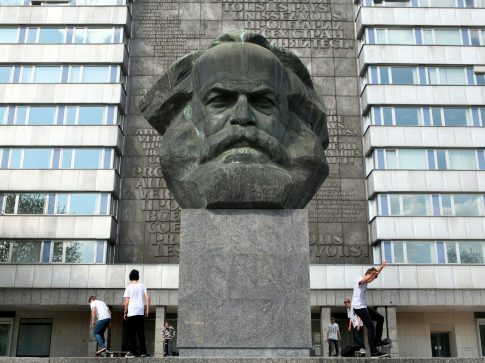
10. Avner Zis
Avner Zis (1910 – 1997) is one of the founders of Marxist aesthetics. Echoing William Morris and Oscar Wilde, Zis considered that the individual can only fulfill their full human aesthetic potential under communism, when they are freed from fears of poverty. He opposed “idealist aesthetics” because, he wrote, they tried to create rather than reproduce reality and thus widened the gap between art and other forms of human activity. Instead, he thought that “universal laws and patterns of art can only be arrived at after the analysis of the nature of particular art forms.” Based on these criteria, Zis praised Dostoyevsky, Tolstoy and Balzac, and rejected Kafka and Camus for their anti-historical works reflecting a pessimistic outlook on human nature.

